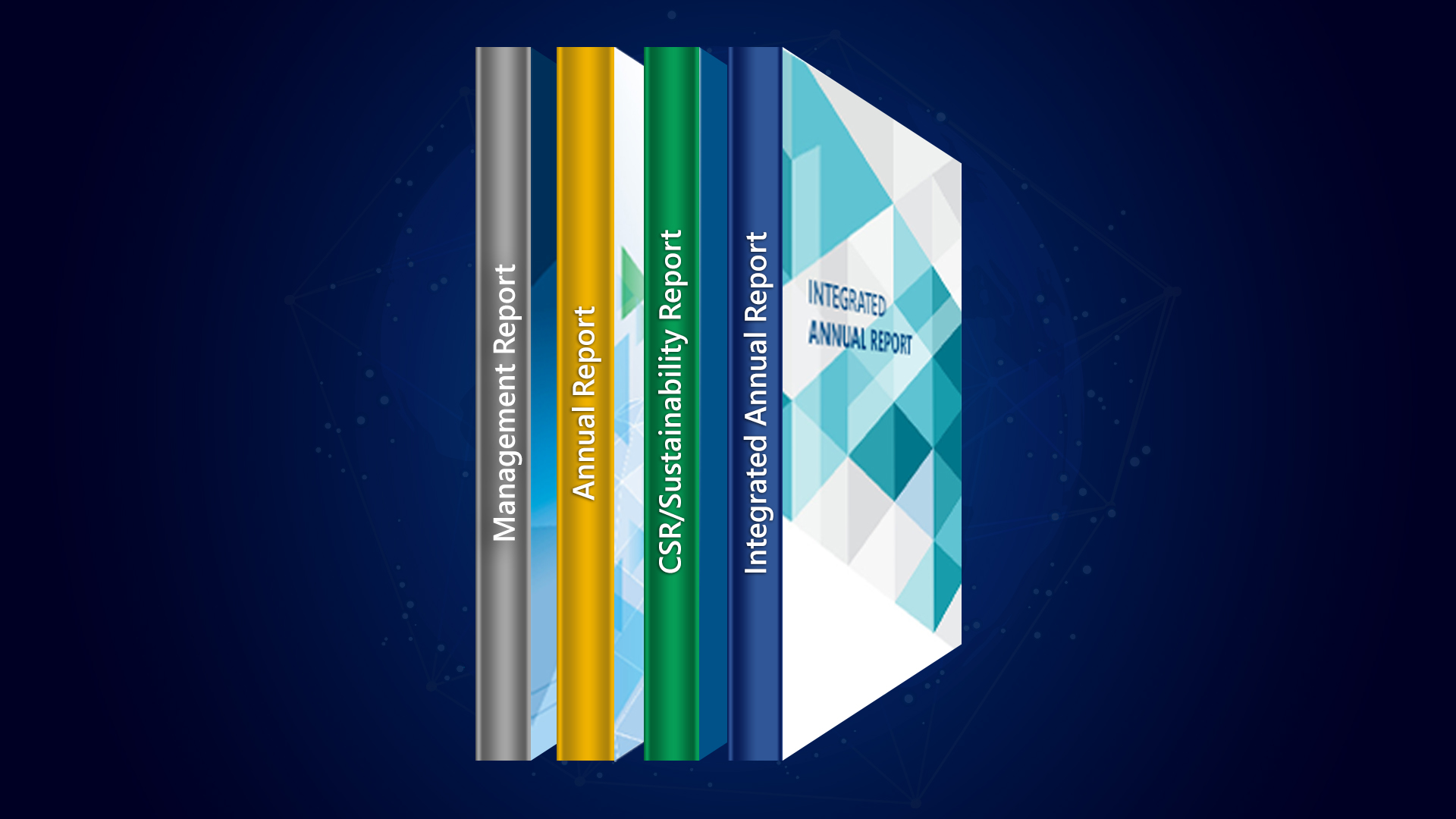
Stakeholder surveys DataMNC values stakeholders opinions on financial statements, corporate reports, and sustainable business performance.
Submit SurveyThe Sustainable Business Performance Conversation

Corporate reporting standards are generally voluntary, and a range of recommended corporate reporting principles and standards developed in recent decades. As of 2022, importantly for the future of corporate reporting frameworks, most corporate reporting initiatives are being coordinated by the new International Sustainability Standards Board (ISSB), under the sponsorship of the International Financial Reporting Standards (IFRS) organization.
Corporate reporting standards are generally voluntary, and a range of recommended corporate reporting principles and standards developed in recent decades.
In the 1990’s “corporate social responsibility” (CSR) accountability awareness led to initiatives for social and value added accounting in Europe. The initial CSR “triple bottom line” consisted of economic, social, and environmental perspectives. At the same time, responsible business principles were being recommended by the UN Sustainability Development Goals (SDGs - and accompanying business commitments under the UN Global Compact) and the OECD guidelines for MNCs. Moving beyond general CSR theory, academic research into the relationship between CSR reporting and business performance focuses on “measurement, management and reporting of economic, environmental and social” results by exploring the relationship between CSR reporting and financial performance results.
Most recently, the investor relations departments of publicly-listed companies, and institutional investment firms, have sought to attract shareholder investments based on Environmental, Social and Governance (“ESG”) perspectives.
The original forms of corporate annual reports included Management Reports, issued in conjunction with annual financial statements, and later traditional annual corporate reports that include annual financial statements. In recent years, increased voluntary corporate reporting often took the form of a new annual “sustainability report”, applying recommended CSR corporate reporting frameworks or standards from independent organizations. Commonly used corporate reporting frameworks referenced by publicly-listed companies for sustainability reports have included: the Global Reporting Initiative (GRI), the International Standards Organization (ISO 26000), the Climate Disclosure Standards Board (CDSB), the Sustainability Accounting Standards Board (SASB), and the Task Force on Climate-related Financial Disclosures (TCFD). Meanwhile, the International Integrated Reporting Council (IIRC) has been promoting the combination of a sustainability report and traditional annual report in the form of an “integrated annual report”.
Each of the standard setting organizations has developed their own guidelines for economic, environmental, and social issues to be addressed by publicly-listed companies, resulting in difficulties for institutional investment advisors and academic researchers to identify consistent and comparable CSR initiatives and reported data. National regulators also began to promulgate annual corporate reporting disclosures with a view towards providing more consistent and comparable information for consideration of investors and other stakeholders.
As of 2022, importantly for the future of corporate reporting frameworks, most corporate reporting initiatives are being coordinated by the new International Sustainability Standards Board (ISSB), under the sponsorship of the International Financial Reporting Standards (IFRS) organization. Similar to the “harmonization” of financial statements, the hope is that the ISSB standards for corporate reporting will improve the consistency and comparability of annual corporate reports with a primary view towards serving investors.
The IFRS experience with harmonization of financial statements suggests that it will take time for the ISSB to make progress, and the ISSB’s initial steps focused on industry sector perspectives can begin to pave the way for more common standards that can apply to all publicly-listed companies.
 Click here to subscribe to our newsletter!
Click here to subscribe to our newsletter!Blog Section
- Corporate Reports and Sustainable Performance
- Financial Statements and Sustainable Performance
- Stakeholder Perspectives on Sustainable Performance
Featured Articles
- Stakeholders and Measurements of Business PerformanceFebruary, 2024


